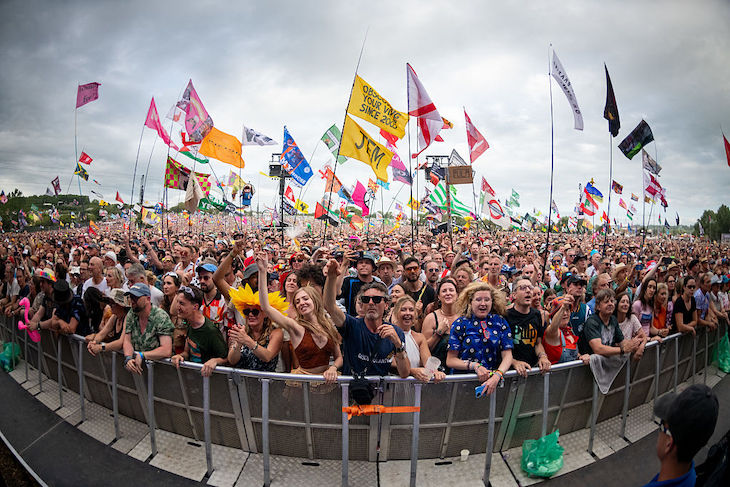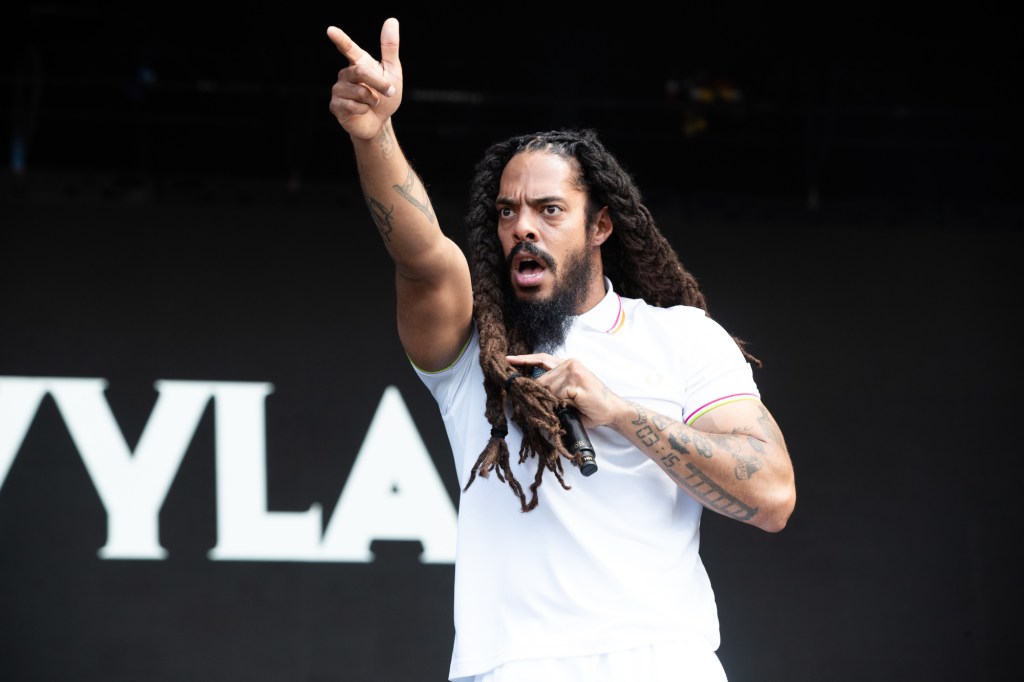Judging by the coverage of this year’s Glastonbury festival, and the reaction in certain quarters, you would be forgiven for thinking that it was little less than a hard-left, Jew-hating Nuremberg rally. It is an impressive achievement to unite the government, led by the Prime Minister, and the opposition in blanket condemnation of two of the acts performing. But the groanworthily named ‘Bob Vylan’ – and the more up-and-at-‘em Kneecap – managed to raise their profiles far beyond what their mediocre music warrants by making various anti-Israel, pro-Palestine comments during their sets. Living up to the old adage that all publicity is good publicity, their streaming numbers promptly went through the roof, even as other, more milquetoast (and far better) acts were there for the enjoyment, too.
A couple of rotten apples do not ruin the cider harvest. This particularly English festival will run and run
The last time I went to Glastonbury was in 2004, the year headlined by a resurgent Paul McCartney, a truly dreadful Oasis and Muse, who for a moment looked as if they would become the next big thing before descending into self-parody and excess. It rained, there was an awful lot of tramping around from one stage to another, and the famously hippyish, let-it-all-hang-out ethos for which the festival had long since been renowned was in the process of being compromised by the advent of corporate funding and celebrities. But there was still the vestige of charming, very British eccentricity.
I bought a (delicious) ostrich burger from Henry Dimbleby, who would later go on to found Leon. And I had breakfast with three charming, well-spoken young men, who rather bashfully informed me that they were performing at the festival. Thinking that they were Somerset locals who had won a competition of some kind, I magnanimously congratulated them, and said that I’d be sure to check them out. “What’s your name, lads?”. “Keane”, replied the most articulate of the three. They had already had chart-topping singles and albums, and were on their way to becoming one of the biggest acts in the country. So much for my cutting-edge knowledge of what was successful at the time.
Certainly, this year’s festival appeared to be unimpressive when it came to its Pyramid Stage headliners. Matty Healy’s achingly self-aware and not terribly good act The 1975 may have female fans of a certain age all a-quiver at his supposed charisma, but in truth he’s no more appealing than the now positively ancient Neil Young, growling in one last time (presumably) to show the youngsters how it’s done. And when pop songstress Olivia Rodrigo closed the festival, it was telling that the biggest cheers from attendees of a certain age came when The Cure’s Robert Smith wheezed into view to duet on a couple of his songs. Rodrigo’s crowd were mystified by who this elderly, make-up wearing figure was, which is all part of the fun.
However, the real appeal of Glastonbury is in its quaint, very English eccentricity, where people like Smith and Healy fit right in. This was perhaps epitomised by the great Jarvis Cocker and Pulp, playing a heavily trailed surprise set on Saturday afternoon that led many to believe that they should have been headlining instead, and Rod Stewart, looking ever more like your lascivious great-uncle, performing ‘Do Ya Think I’m Sexy’ with all the erotic allure of a lawnmower. No, Rod, we don’t, but we’re glad that you’ve still got the chutzpah to advertise your wares in front of hundreds of thousands of people.
Yes, Glastonbury is shamefully (shamelessly?) white and middle class, full of Honorias and Saffrons and Henrys and the like who see this weekend of Somerset as a rite of passage, something to be undergone annually before the season truly begins. These people spend thousands to go glamping, meticulously ‘curate’ outfits to be as Instagram-friendly as possible and spend their weekends posing. These people are also fools.
For the rest of the attendees, who want to see as wide and eclectic a range of musical acts as possible, with the whole experience leavened by a sense of fun, Glastonbury really is first amongst equals, and this little flurry of controversy will do it no existential harm in the long run. A couple of rotten apples do not ruin the cider harvest – and this particularly English festival will run and run, one suspects. It lies fallow in 2026, and then returns in glory in 2027. Perhaps, 23 years on, it will be time for me to return to it, once more.







Comments